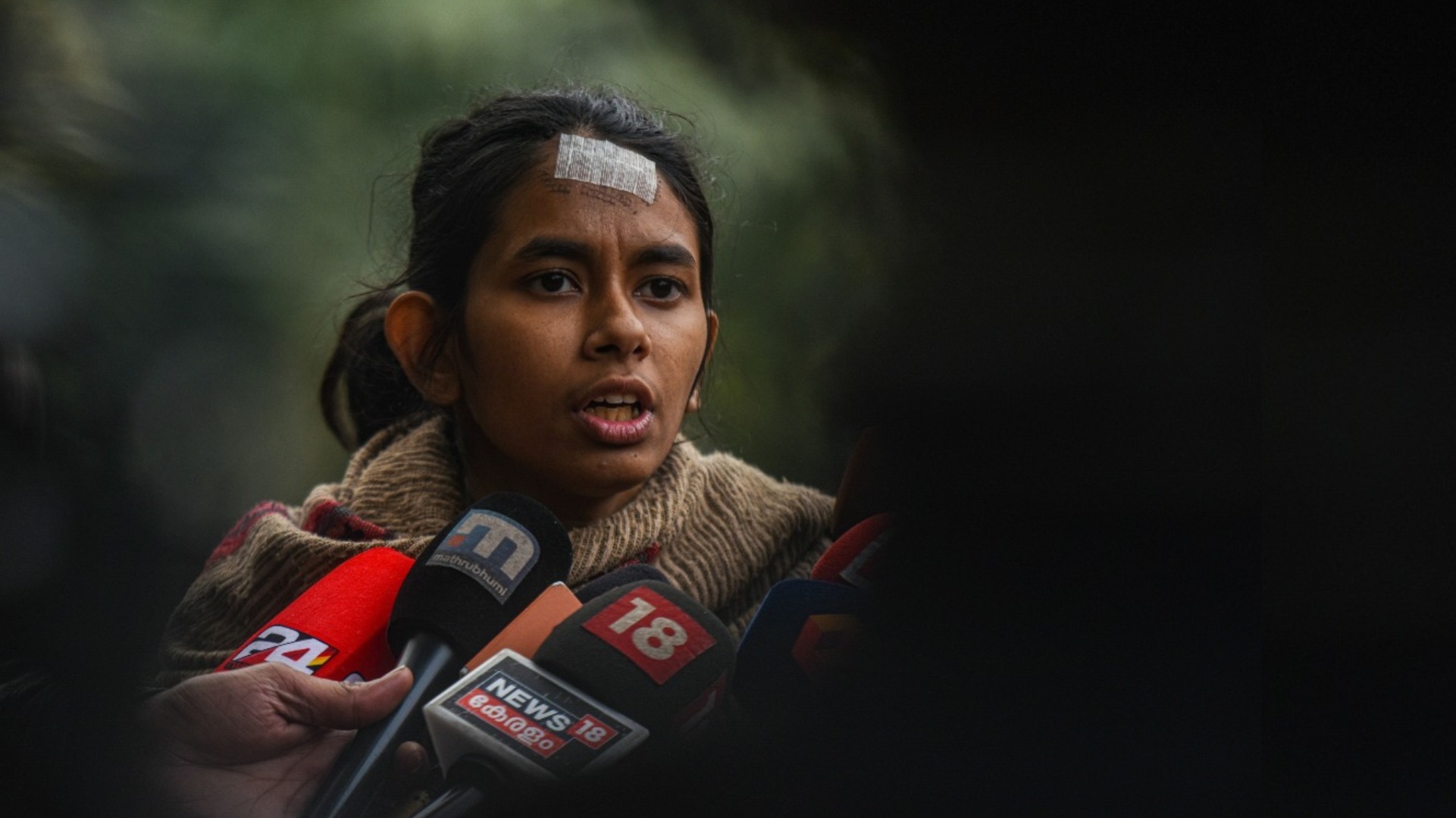ON 5 JANUARY 2020, the night that Jawaharlal Nehru University was attacked, I was at my parents’ home, visiting them for New Years’. My usual news-tracking method is to lie in bed with my phone pulled close to my face, refreshing Twitter. But my parents own something I don’t, something terrible: a television. So while muscle memory hunted updates on my phone every minute, I sat up in simultaneous worship of the news on TV, spotlit by flashing graphics for what felt like hours, forgetting again and again to breathe. The rule of law’s brutal coming apart: now a two-screen experience. Even as the objective truth screamed from behind JNU’s locked gates, the two screens broadcast endless different versions of it. #LeftAttacksJNU and #ABVPGoons and #SOSJNU jostled to climb Twitter’s trending column, each with a different story in tow. At maybe 2 am, when the attackers had left campus, when Twitter updates had slowed to a trickle and WhatsApps from Delhi had deescalated to “I’m home, I’m ok”, I tore myself away from both screens and wandered, seeking stillness, to an old bookshelf. My fingers ran across the wrinkled spines of childhood favourites and one title called most sharply — a young person’s first-person account of life under a violent, divisive, authoritarian regime, The Diary of a Young Girl. I pulled the book out and flipped through spotty, yellowed pages, looking for who knows what. Anne Frank offers a lot. Meditations on self-knowledge, advice for self-soothing the jitters from overheard gunshots (run up and down stairs loudly to distract yourself and drown out the sound), the simple gut-punches of life through a genocide (“Women return from shopping to find their houses sealed, their families gone.”). I remembered now, standing again in her familiar annex, how it had felt to read her at 13. I remembered the greatest gut-punch of all: that the book trails off rather than ends. Her arrest, her journey into concentration camps, and her death hover close after its final pages, left unwritten or unpreserved. I remembered how the cold facts from history class — the death toll, the way Jews were identified by their clothes — had come alive, become emotionally unforgettable, when they came to me in the real voice of a real girl. History has two stewards, I think — record-keepers who guard the veracity of detail, and storytellers, who breathe moral life into factual record. Learning about Nazi Germany from textbooks is to know what happened. Reading The Diary Of a Young Girl is to understand, in a bone-deep way, why nothing like it should ever happen again. State machineries flex to keep accurate record of the present day from the clutches of history. The media distorts reality. Police break into homes demanding that social media posts be taken down. Where it can’t silence dissent with violence, the state shuts down the internet altogether. It is telling that India’s long-promised digital dawn sits punctuated by patches of pitch black. For over five months, Kashmir’s bloodied pleas and calls for freedom have bounced off a dome of virtual silence. [imgcenter]
History has two stewards: record-keepers who guard the veracity of detail, and storytellers, who breathe moral life into factual record, writes Rega Jha
Advertisement
End of Article


)
)
)
)
)
)
)
)
)



